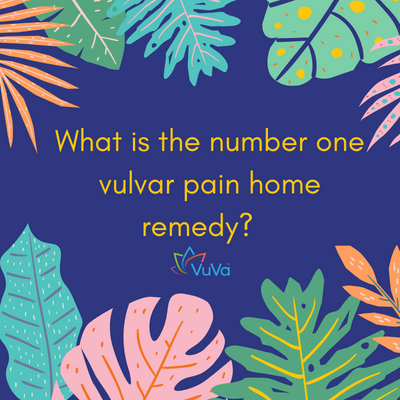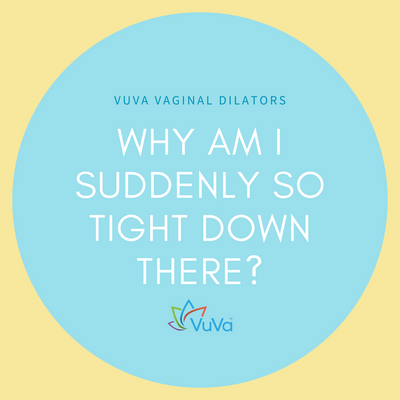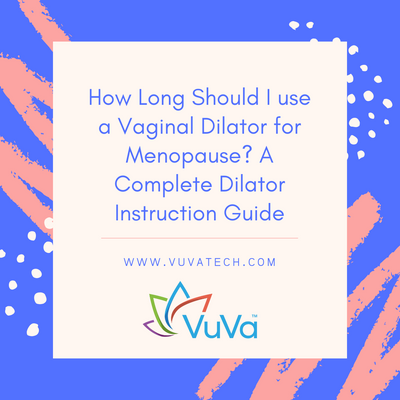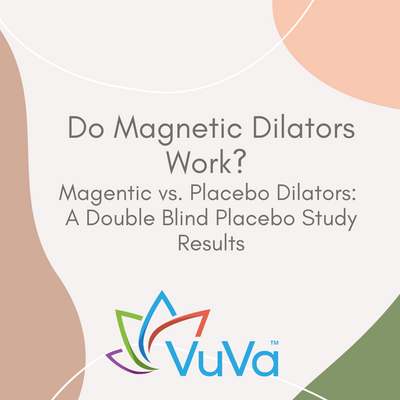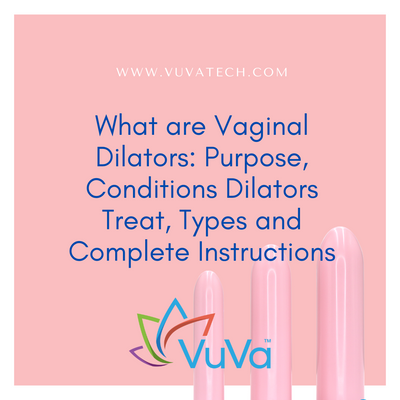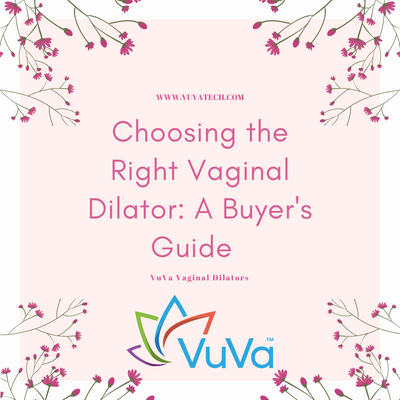
| Tara Langdale
Say Goodbye to Painful Intercourse After Menopause
Are you experiencing painful sex after menopause? If so, it can take a severe toll on sexual health. The dryness and pain from vaginal atrophy cause vaginal pain and lowers your sex drive while impacting your relationships. There's no reason you have to glide into your golden years, leaving sexual pleasure behind. In this article, we'll explain the connection between menopause and painful sex and explore treatment options.
Hormonal Changes
Postmenopausal women know a lot about hormone changes. In the 4-5 years before menopause, hormone levels fluctuate wildly resulting in a variety of menopausal symptoms, including: (1)
- night sweats or hot flashes
- weight gain
- vaginal dryness
- hot flashes
- low sex drive
- vaginal discharge
- dyspareunia or painful sex
- changed vaginal capacity
The biggest culprit for all these symptoms of menopause is low estrogen levels. Estrogen is the primary female sex hormone key for many bodily functions, including regulating the menstrual cycle and fertility.
While it's normal for estrogen to fluctuate during a woman's menstrual cycle, sustained low levels thrust a woman into menopause. Gynecologists and doctors consider a woman entering menopause after she hasn't had her period for 12 months. Some women undergo hormone therapy by using a topical estrogen cream to balance levels.
Low estrogen levels and painful intercourse
Low estrogen levels reduce the amount of vaginal moisturizer produced. Without natural lubrication, penetration can be painful, possibly tearing the sensitive vaginal tissue. Also, a lack of estrogen may change the shape and size of the vagina. Hormones are critical messengers in the body, and any change has a physical and mental health result.
A woman may find sex painful after menopause, but there could be a lack of real sexual desire. Since estrogen, in conjunction with another essential female sex hormone progesterone, regulate fertility, optimal levels naturally result in a desire to have sex. Without the necessary vaginal estrogens, many women may find that physically it's painful but also undesirable.
Dyspareunia and menopause
Dyspareunia is the medical term for painful sex. According to the Harvard Medical School, dyspareunia is pain before, during, or after sex. The cause may be known or unknown, and the sexual dysfunction intermittent or ongoing. (2)
It’s also not common for women to go for a long time without chronic pain, and then experience a painful flare-up. When the cause of dyspareunia is menopause, the good news is that it’s treatable.
Ways to stay sexually healthy
If you’ve stopped sex after menopause, you’re not alone. But that doesn’t mean you can’t resume healthy sexual activity. The following treatments are available for overcoming painful sex and menopause. (3)
Vaginal lubricants
Most of the time, sex hurts because of inadequate vaginal lubrication. The most obvious choice is to implement a high-quality lubricant. It's recommended that you choose a water-based lubricant to ensure your body doesn't react to the ingredients. Lubricants ease the pain with penetration, leading to pleasurable intimacy. Slippery Stuff Brand Lubricants are the number one choice of pelvic floor physical therapists for women with pelvic pain and atrophy.
Vaginal moisturizers
Vaginal moisturizers are different from lubricants in that you use them when not engaging in sexual activity. They are vaginal inserts that infuse moisture into the tender tissue of the vulva and vagina. You put them in your vaginal cavity two or three times a week before bedtime.
Vaginal Estrogen therapy
ERT adds back the missing hormone naturally. The most common supplement form is applying a topical estrogen cream or taking an estrogen tablet. Although there is some controversy about ERT due to some evidence suggesting it puts older women at a higher risk for blood clots, cancer, and other health conditions.
However, a further scientific review showed that the slightly increased risk for postmenopause women depended on their age. For some, ERT provides more benefits than risks. (4) Before beginning estrogen therapy, speak to your health care professional.
Engage in extended foreplay
Without penetration, you may feel as if you're aren't engaging in sex. Perhaps, it's time to reconsider sexual intimacy. Foreplay can be equally exciting and ending in bliss for both people. Sometimes we rush to the climax when taking the time to enjoy each other makes all the difference.
As you age, a long kiss may be just what you need. Or work your way up to sex by cuddling first. The possibilities for sexual foreplay are endless.
Commit to regular sex
When you don't have regular sex, especially after menopause, your vagina can change shape. It may become smaller, making penetration painful even if you're aroused. One way effective treatment is regular sex. While this may not seem logical, you'll start to see that your vaginal lining has gained elasticity, and you're able to handle longer and deeper thrusting. If you are not in a sexual relationship, vaginal dilating can help to keep things relaxed.
Try vaginal dilators
One proven treatment to cure dyspareunia or painful sex is to use vaginal dilators. Healthcare professionals have long prescribed pelvic floor physical therapy to help women with overcoming painful sex.
Vaginal dilators resemble sex toys, but are medical therapy devices that naturally stretch and strengthen pelvic muscles inside the vagina and in the vulvar region, which includes the outside genitals. Vaginal dilators are sometimes called vaginal trainers because you're using them to "train" your vaginal tissue back into excellent shape.
Vaginal physical therapy increases blood flow into the tissues to rejuvenate and soften until they're supple and robust. Like any kind of treatment, it may take weeks or months before your vagina is ready for pain-free penetration.
One of the frequently asked questions about dilators is, do they work? In a clinical trial, all participants reported an 80% reduction in pain after using VuVa™ magnetic vaginal dilators. Vaginal dilators improve sexual functioning with minor to no side effects. Each set comes in graduated sizes, making it easy to begin treatment at your comfort level in the privacy of your own home.
Enjoyable sex after menopause is possible for every woman. You can overcome painful intercourse and have a healthy and satisfying sex life. The first step is to speak to your doctor to discover if vaginal dilators are right for you.
- https://www.nia.nih.gov/health/sex-and-menopause-treatment-symptoms
- https://www.health.harvard.edu/a_to_z/painful-sexual-intercourse-dyspareunia-a-to-z
- https://www.menopause.org/docs/default-source/for-women/mn-vaginal-dryness.pdf
- https://www.nih.gov/news-events/news-releases/womens-health-initiative-reaffirms-use-short-term-hormone-replacement-therapy-younger-women#:~:text=The%20Women's%20Health%20Initiative%20studied,the%20trial%20of%20estrogen%2Dalone.
VuVa Helpful Links:
7 Reasons for a Tight Vagina and How to Loosen
How to Relax Vaginal Muscles, Vaginismus & Sex
Vaginal Stretching - Keeping in Shape with Dilators
Do Dilators Really Work? Yes, and They can Improve Your Sex Life!
Shop for VuVa Vaginal Dilators


